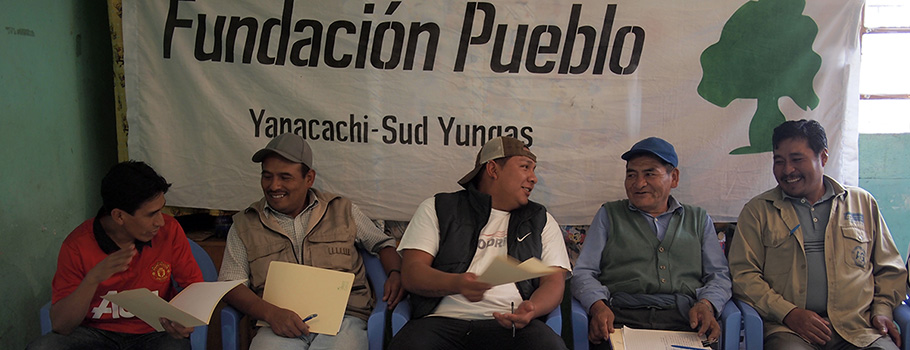
Civil society in Bolivia has significant opportunities for participation in public spending at the local level. To be able to use it better the civics project of Fundación Pueblo provides citizens and their grass-roots organisations access to any important information concerning local politics.
Civil society rights through access to better information
The civil society and its organisations have played an important role in the turbulent history of Bolivia. They were the players of the national revolution of 1952, they abolished the large estates and introduced universal suffrage. They were responsible for the recovery of democracy after the military dictatorships of the 70s and 80s. Since the law on citizens’ participation in the 90s, the citizens and their grass-roots organisations have been granted significant participation rights in the design of public budgets at the local level (urban and rural districts). This is effective to use but requires access to relevant civic information which is in the country in particular still very limited.
With our program “Acceso Público” (“open access”) Fundación Pueblo supports disadvantaged groups of Bolivian civil society, allowing them to take a qualified part in public discussion and decision making processes through the timely dissemination of relevant information. The project “Informed citizen participation” puts this approach into action at a local level, in order to strengthen the possibilities of the participation of the 30 municipalities in our home county Yanachaci.
Send via several channels simultaneously
The project was able to expand its social base in the district in recent years with a number of cooperation agreements with local community-based organisations and through the use a range of different media and forms of communication for civic education. These include the ongoing reports that are produced by our country radio reporter about interesting topics in current local politics from the communities of the region and aired by our cooperation partner “Radio Yungas”.
In the Information Bulletin “Datos & Hechos de los Yungas” the main reports are summarised on a monthly basis and supplemented by contributions from the Berlin office. On special occasions special editions come out, e.g. during the census and the local election results.
In public events the civics topics which are particularly in demand from the grass-roots organisations in the district are dealt with. These include lectures on the new mining laws and educational reform and workshops on Leadership in social grassroots organisations. The professional speakers are obtained from competent government bodies or civil society organisations. The project archive with local and generally politically relevant laws and decrees is primarily used by the directors of the grassroots groups. It is available at our headquarters in Yanacachi in the village service office of the Foundation. There there is also assistance for the citizens in the writing of documents and petitions.
Following a suggestion at the annual meeting of the foundation, a public library was established on the occasion of the opening of an open youth leisure space (“Anatañani”). The target group of the project was extended to the students of the center school.
[From the “Anatañani” – a lending library for students to use.]
Listen to what the listeners say
At the end of 2014, a listener and reader survey on media use of the project was carried out in various communities of the county. The results show that “Radio Yungas” continues to play a pioneering role in the audio media in this rural region, and that the information bulletin “Datos & Hechos en los Yungas”, one of the few examples of written media in the district, continues to provide important and valued information about social affairs to the local population.



